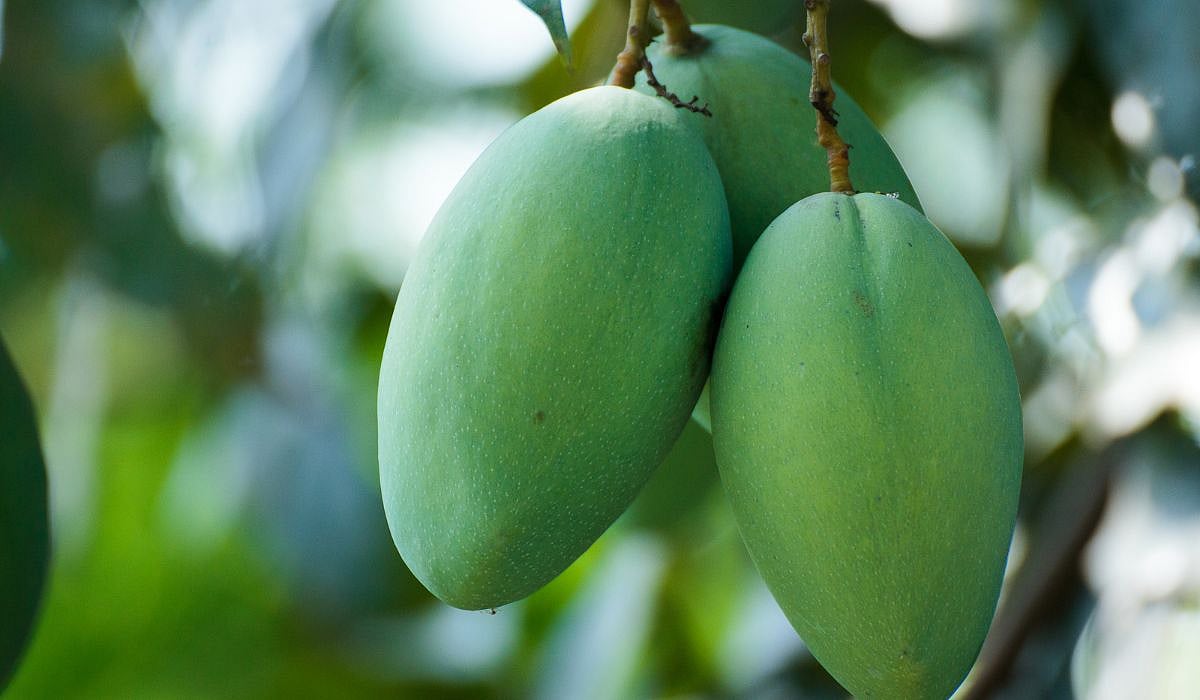National Mango Day 2025: When Did Mangoes Come To India? Lesser-known Facts About The King Of Fruits
Every year, National Mango Day is celebrated on July 22. The day honours the delicious fruit known as the King of Fruits. Loved for its sweetness, rich flavour, and nutritional benefits, the mango holds a special place in Indian culture and cuisine.

National Mango Day 2025 | Photo Credit: Canva
Every year, National Mango Day is celebrated on July 22. The day honours the delicious fruit known as the King of Fruits. Loved for its sweetness, rich flavour, and nutritional benefits, the mango holds a special place in Indian culture and cuisine. In 2025, National Mango Day once again highlights this beloved fruit that brings joy during the scorching summer months.
Origin of the mango
The mango, scientifically known as Mangifera indica. Mangoes are believed to have originated in South Asia, specifically in the Indo-Burma region, which includes parts of India, Myanmar, and Bangladesh. This juicy fruit has been cultivated in South and Southeast Asia for thousands of years. They were domesticated separately in South and Southeast Asia. It leads to the two distinct populations of modern mangoes, the Indian type and the Southeast Asian type.
When did mangoes come to India?
Interestingly, mangoes are native to India, with their cultivation dating back over 4,000 years. Historical records suggest that mango trees were first domesticated in the Indian subcontinent, spreading from India to Southeast Asia and beyond. It is believed that Buddhist monks carried mango seeds on their travels, helping the fruit spread to different parts of the world. Ancient texts, such as the Vedas and Ramayana, mention mangoes as a divine fruit cherished by sages and royalty alike.
Interesting facts about mangoes
Mango is not only the national fruit of India but is also the national fruit of Pakistan and the Philippines. It symbolises prosperity, love, and abundance.
India is also known as the world’s largest producer of mangoes, contributing to nearly 50 per cent of global production.
There are over 1,500 varieties of mangoes grown in India, including popular types like Alphonso, Dasheri, Kesar, Langda, Banganapalli, and Himsagar.
Mango leaves are considered sacred and are used in Hindu rituals and festivals for decoration.
The name mango comes from the Tamil word ‘māṅgāy’, which Portuguese traders adopted as "manga" in the 15th century.
Mangoes are rich in vitamin C, vitamin A, fiber, and antioxidants, making them not only tasty but also healthy.
Mango festivals are celebrated in several Indian states to showcase regional varieties.
National Mango Day 2025 is a perfect time to savour your favourite mango and appreciate its long-standing cultural significance in India.
RECENT STORIES
-
-
-
-
-
